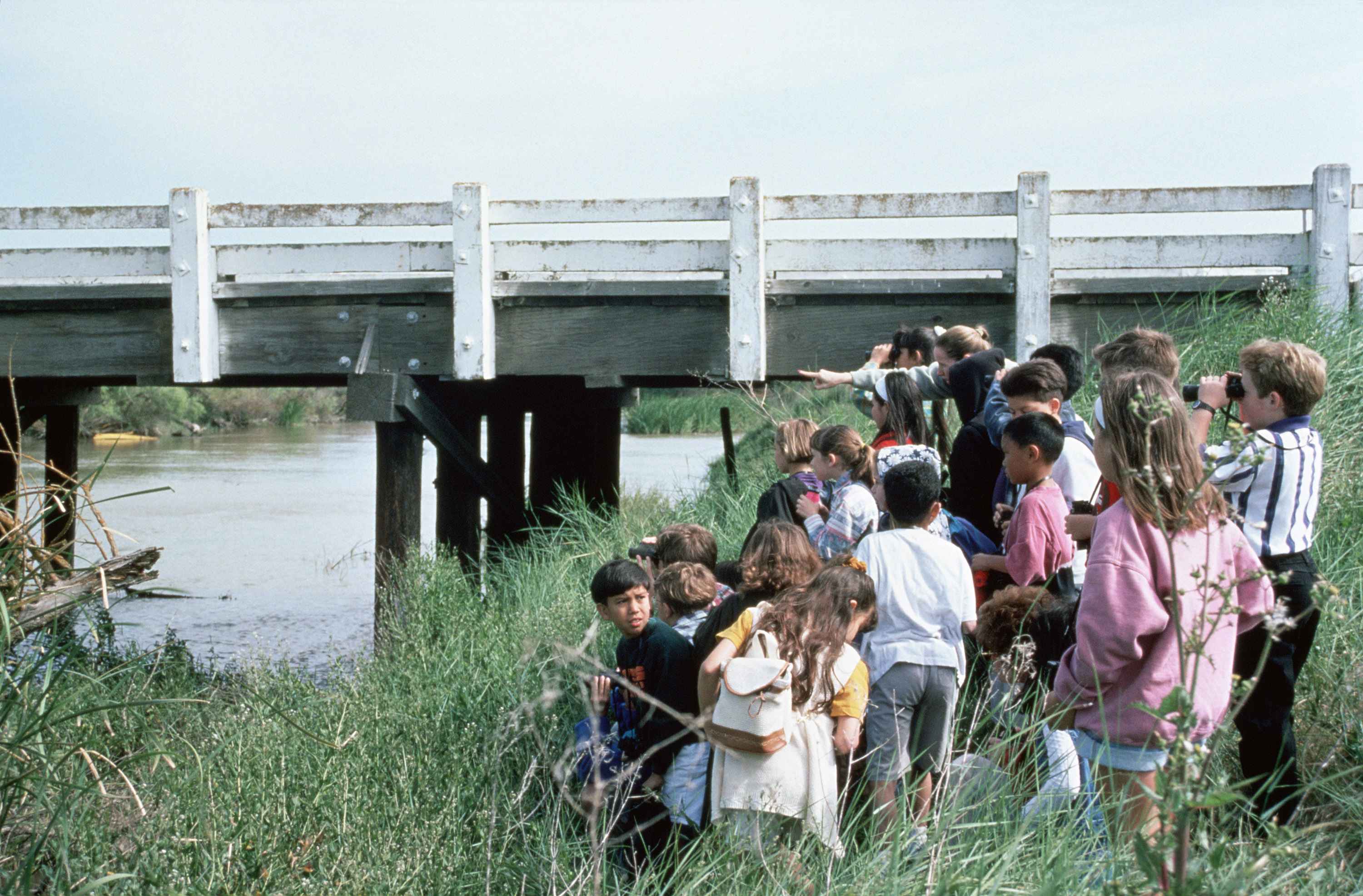
Rangers at wildlife refuges across the United States are battling the general public’s fear of nature this summer by making sure that quality nature education is accessible to all ages, according to US Fish & Wildlife Service officials.
These rangers’ observations that most children, even up to college age, have a very limited experience of nature,are evidence of a larger problem, popularly referred to as Nature Deficit Disorder (NDD). NDD is a term coined by author Richard Louv in his 2005 book, Last Child in the Woods. Although not formally recognized as a medical condition, NDD is embraced as an important concept by educators, environmentalists and holistic health professionals because it describes today’s growing cultural trend toward disconnection from nature. The consequences of this disconnect on health and well-being are increasingly being recognized. Childhood obesity has doubled for preschoolers and adolescents and more than tripled for children aged 6-11 over the last 30 years, to the point where approximately 16% of US children aged 6-19 are overweight or obese. The scientific research literature is replete with evidence suggesting that lack of outdoor activity contributes not only to obesity and overweight, but to attention deficits, anxiety, diminished neural-sensory responses and higher rates of a widening range of emotional and physical illness.
Louv’s maintains that urban living restricts children’s outdoor play while electronic entertainment keeps kids indoors. As of 2008, for the first time in US history, more people live in urban areas than rural ones. Today’s children spend approximately 53 hours per week in front of electronic devices. In addition to excessive screen time, studies show that children have less freedom to roam outside today than those of previous generations. Although 56% of parents today were allowed to walk or bike to school alone when they were 10 years old, only 36% would allow their own children to do the same now. The resulting lack of physical inactivity is contributing greatly to chronic health problems in children that will follow them into adulthood, suggesting that losing contact with the natural environment is potentially devastating to overall health and well being.
After his first book was published in 2005, Louv observed that the phenomenon of nature deficit affected adults as well, and he wrote a second book, The Nature Principle: Reconnecting with Life in a Virtual Age, published in 2011. The Nature Principle explores the key question: “What could our lives and our children’s lives be like if our days and nights were as immersed in nature as they are in technology?” Louv’s work has started a grassroots movement, the Children & Nature Network, to reconnect human beings with the natural world.
Through a grassroots movement,Louv supports school-based initiatives to get kids outdoors more often, including nature preschools. He calls upon parents to refrain from overreacting with fear to stories sensationalized by the media, and he further suggests that urban planners design cities with nature in mind. Either the human connection to nature will continue to fade, or nature education efforts will increase and urban living environments will begin to change, reflecting a profoundly different recognition of nature.
Meanwhile, refuge rangers like Sagan and Inslee are on the front lines of nature education, developing their communication skills to help children and adults understand that alligators do not live in the swamps of New Jersey and the vital importance of NOT feeding wild animals.
By Lane Therrell
Sources:
FWS
Education
ChildrenandNature
NationalGeographic

